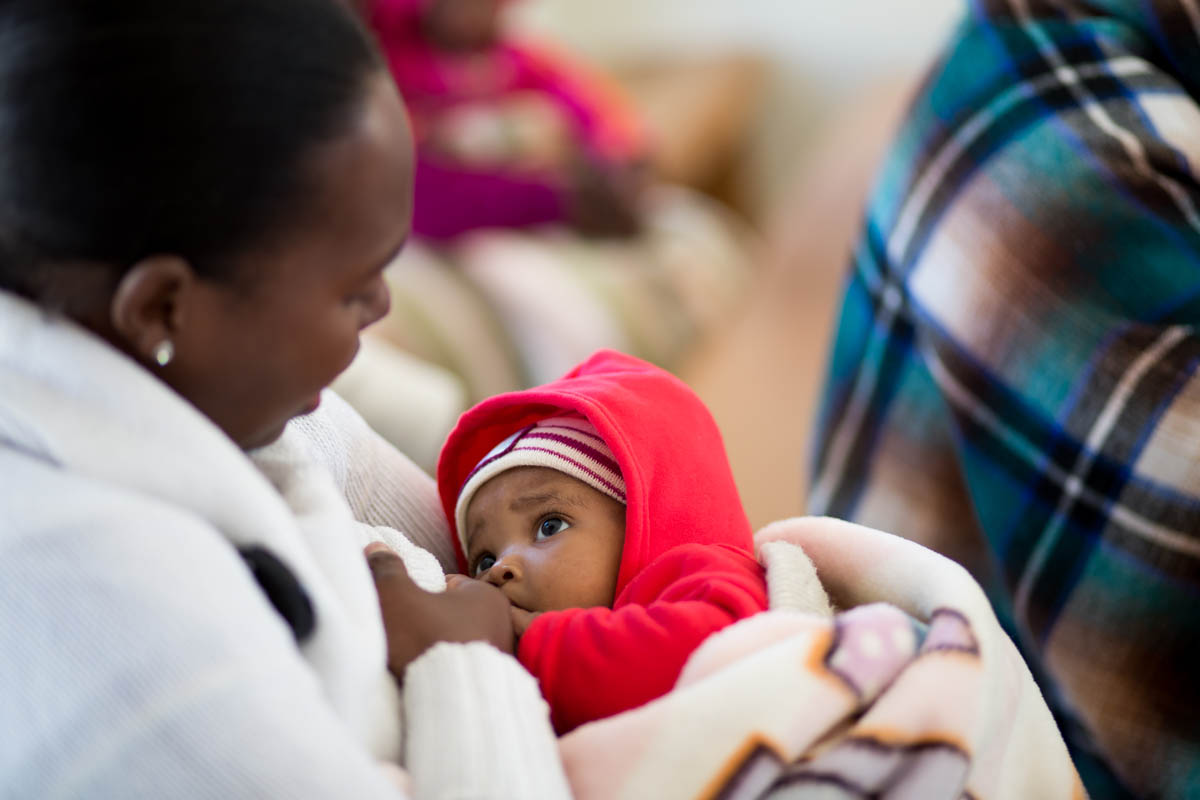Why initial, exclusive breastfeeding is important
Breastfeeding has a lot of benefits for babies. Experts say it is one of the most effective ways to ensure child health and survival. In spite of this, many children in the country are not breastfed within the first hour of birth or exclusively breastfed. According to the 2021 Multiple Indicator Cluster Survey/National Immunization Coverage […]

Breastfeeding has a lot of benefits for babies. Experts say it is one of the most effective ways to ensure child health and survival.
In spite of this, many children in the country are not breastfed within the first hour of birth or exclusively breastfed.
According to the 2021 Multiple Indicator Cluster Survey/National Immunization Coverage Survey Report, two out of every 10 newborn children (23 per cent) are breastfed within one hour of birth. The survey said this is a decrease from three out of every 10 five years ago.
The survey also revealed that the highest percentage of newborn children that were breastfed within one hour of birth is found in Osun (75 per cent) while the lowest levels are in Jigawa (8 per cent) and Imo (7 per cent).
“Two out of every 10 newborn children (23 per cent) are breastfed within one hour of birth.
“Early initiation of breastfeeding is higher among children whose mothers have tertiary/higher education (27 per cent) than among those whose mothers have no education (19 per cent).
“Early initiation of breastfeeding is higher among children delivered in a health facility (30 per cent) than those delivered at home (19 per cent).
“Three out of every 10 children aged 0–5 months (34 per cent) are exclusively breastfed,” the MICS survey revealed.
The World Health Organisation (WHO) and UNICEF recommend early initiation of breastfeeding within the first hour of birth and for babies to be exclusively breastfed for the first six months of life – meaning no other foods or liquids are provided, including water.
UNICEF said this is important because breast milk is a baby’s first vaccine, boosting immunity against diseases and brain development.
Dr Victor Ogbodo, Alive & Thrive Nigeria’s Programme Director, said the rate of exclusive breastfeeding in Nigeria is still far short of the 50 per cent target by 2025 set by the World Health Assembly.
He said exclusive breastfeeding — feeding infants breastmilk only during the first six months of life — is one of the essential actions for infant development and survival.
“We’ve made significant progress in recent years,” he said. “But we can and must do more.”
The Minister of Health, Dr Osagie Ehanire, said the importance of breastfeeding cannot be overemphasised.
He said, “It is the foundation of child survival, health, growth and development. It provides every child with the best possible start in life. It delivers health, nutritional and emotional benefits to both mother and child. It also forms part of a sustainable food system.”
According to him, breastfed babies have stronger immunity, a reduced risk of infections against many childhood illnesses, and may also have longer-term health benefits, including a reduced risk of overweight and obesity in childhood and adolescence.
“About 80,000 child deaths are reported to be prevented annually when optimal breastfeeding is practiced. Mothers also benefit enormously from breastfeeding,” he said.
Experts say the first breast milk also contains nutrition that protects the newborn from diseases, and that all children who are exclusively breastfed are less likely to fall sick.
In addition, they say this is one of the most cost-effective ways of reducing infant mortality and promoting a healthy nation.
The Chairman, Senate Committee on Health, Senator Ibrahim Yahaya Oloriegbe, said there is a need to create an enabling environment to support optimal breastfeeding in the country.
He said there is a need to promote breastfeeding from school, educate girls, increase engagement for early initiation of breastfeeding, use of local language for dissemination, creation of breastfeeding rooms in workplaces and enforcement of six-month maternity leave across the country, among others.
